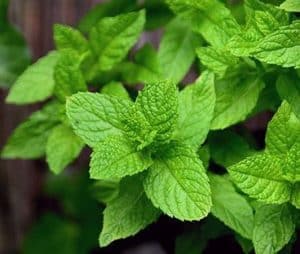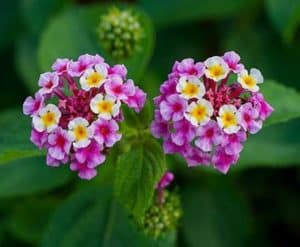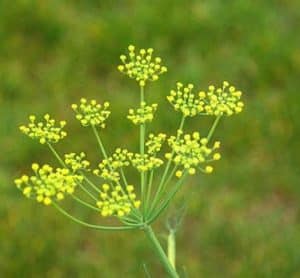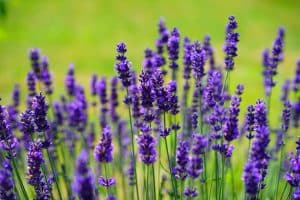8 Plants That Help Keep Mosquitoes Away

More than almost any other animal, mosquitoes may make it impossible for us to enjoy being outside. If chemical mosquito repellents aren’t your bag, consider planting garden plants that naturally repel mosquitoes due to the smell of their natural oils. The citronella plant, Phyllanthus x citrosum, which was debunked as a repellant by a Florida A&M study, is one plant that you didn’t believe was on this list.
Pest control cannot be achieved by just growing these plants that repel mosquitoes. The plants’ oils need to be produced in order to boost their capacity to repel insects. Some plant cuttings can be put on the grill (most relevant when the plants are known for their culinary value).
Cut the plant stems and leaves into little pieces, and then distribute them over your lawn and in the area of your outdoor living spaces. Simply place some plant stems in areas where individuals walk to release mosquito-repelling oils with each step if you’re short on time before going outside.
Are Plants That Repel Mosquitoes Effective?
Biting insects that feed on blood, like leeches and mosquitoes, locate their food by smelling the gases that warm-blooded animals release. The main attractants are sweat and the carbon dioxide created by breathing.
Strong-smelling garden plants can help mask the smells that these insects use to locate their prey, confusing the insects and minimizing bites.
However, simply planting these types of insectivorous plants in your environment and hoping that mosquitoes go away is rarely sufficient. Most of the time, you’ll need a stronger version of the plant’s smell, which can be created by smashing or burning the leaves to release the aromatic essential oils.
-
Marigold

The smell of marigold plants is unique and can only be characterized as unpleasant. These annuals that deter mosquitoes are simple to grow from seed and look lovely in the blossoming vegetable garden. They may even deter other insect pests, like worms.
Pyrethrum, a chemical found in many organic pesticides, is just what gives marigolds their power to repel pests.
-
American Beautyberry

The little white flowers of the Used as Americana aren’t particularly appealing, but the small shrub stands out in the environment due to its vibrant red fruit clusters. The Lamiaceae family, which also comprises numerous mints, includes beautyberry plants.
The beautyberry’s leaves can be broken to release aromatic oils that ward off insects, and the berries frequently persist well into the winter, attracting and nourishing birds and smaller animals.
-
Mint

If you grow your own mint (Mentha spp.), you may make the ideal mint mojito and enjoy it outside without having to deal with pesky mosquitoes. There are more varieties of mint plants than you might think, and they all repel mosquitoes.
Explore the small variations between peppermint and spearmint, or be amazed at how much the mint chocolate plant smells like a chocolate dish. In your effort to drive away mosquitoes, collect all mint varieties freely, as they spread like wildfire.
-
Lantana

A paper on the powerful anti-mosquito effects of lantana (Lantana camara) blossoms was published in a scholarly journal. According to the Journal of the American Mosquito Control Association, lantana flower extract in coconut oil protected against 94.5 percent of Aids aegypti and Aedes dengue mosquito’s.
In fact, the research reveals that this oil mixture offered users an average of 2 hours of mosquito protection. What a benefit that lantana flowers, which grow well in warm, sunny places and draw butterflies, are so simple to grow!
-
Fennel

In favor of more compact plants, fennel plants (Foeniculum vulgar) are frequently excluded from herb gardens; however, these plants have other functions in addition to mosquito control.
The feather plants are just as beautiful as any tall garden grass, and the cut leaves smell good in salads and stews. In addition, swallowtail butterfly caterpillars live on the leaves in the garden.
The particularly gorgeous bronze fennel will self-seed and grow into a wonderful colony for the next season.
-
Allium

Allium, perennial bulbs with the common name “ornamental onion,” has a smell akin to that of chives, garlic, and table onions, which are all members of the same family.
Allium plants have an exotic appeal with their distinctive, globe-shaped flower clusters, which also deter mosquitoes and other pests.
However, these plants have a low level of toxicity, so if you have dogs that enjoy chewing on plants, use care. A select few plants, like allium, deter mosquitoes just by being present in the garden.
-
Catnip

You can be protected from mosquito bites by the same plants that irritate your cat. Take a stroll with the cat through the Nepeta bushes, often known as catmint, whose leaves your human guests can eat.
To create an area where you may rest without being bitten, scatter some clippings around the patio and pool. Consider the cultivar “Walker’s Low,” which can thrive in dry soil and blooms from late spring to mid-summer.
-
Lavender

The sweet, soapy scent of lavender penetrates the foliage as well as the purple flower spikes, which lavender growers prize for their smell. It’s a known fact that mosquitoes like this smell, and because lavender has a good smell, you can put the plants on your skin to work as a natural mosquito repellent.
Also Read : Action Camera Flashlight







